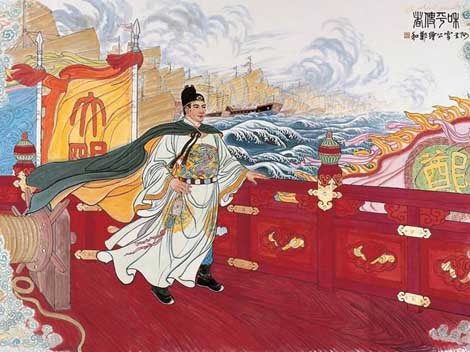They came as four families : Wang, Li , Hong and Guo. They were the four Muslim families from TianJing among the 108 families of labourers imported from China by the British Charter Companies to work at the railways and plantations in Sabah. This was in the year 1913. The other families were from ShanDong. After almost 90 years, today there is in Sabah a small community of Chinese Muslims, descending from these four pioneer families. No previous study has been found on this community. Quite contrary to the Terengganu Hui Hui’s descendants, even the fifth generation children speak fluent TianJing Mandarin, and are very well aware of their Chinese Hui identity. My interviewee, QC, Saleha Li QingChun, a lady from the 4th generation, works in a construction company owned by her uncle. Her father Li De Xiang, at 66 years old, recalled well their life as children in Sabah. They were ten siblings. There was no doubt that the Chinese heritage was strong, and to be maintained. Even in the second generation, there were already mixed marriages to Muslim Dusuns and Kadazans, and to non Muslim Chinese. The Chinese had to convert, and the other races who came into the families soon learnt to speak Chinese with their children.
QC’s mother is Hainanese. She converted to marry her father. Initially her family was against her becoming Muslim, but later it was accepted, and good relations prevailed. Her younger brother is married to a Dusun wife who learnt to speak Chinese. Her sister married a Chinese convert. They are still a big Chinese Muslim family.
Today the descendants of these four families number in a few hundreds, (less than 500 hundred according to QC). Only those who married local Malay Muslims did not give their children any Chinese surnames, and instead used bin / binte ….
Trying to find the reason behind the preservation of the Chinese Muslim identity in such a minuscule minority group, the first thing that comes to mind would be the lack of a homogenous majority group like the Malay Muslims in the Malay Peninsula. In Sabah, the Muslim community, rather than being almost all Malay, comprises many other races such as Dusun, Kadazan, Melanau, who have different cultures and languages than the Malays. Among them, a Muslim of Chinese race would not find it hard to fit in with his Islamic background and a different culture and language. They would just be one of many.
One other reason is the solidarity shown to these few Muslim families by the other immigrant Chinese community, the ShanDong families who came together with them. This same sensitivity is not seen in the local Chinese community, such as for example, the Hakkas. QC tells of the two different kitchens kept by some ShanDong families and the ShanDong Association. These Muslims are not left out when there is a celebration such as a festive day or a wedding. Their food comes out from the Muslim kitchen, but the celebration and the spirit of togetherness are shared.
Home »
Tianjing Hui Hui
» Tianjing Hui Hui
Tianjing Hui Hui
Written By Malaysian Chinese Muslim on Friday 25 February 2011 | 13:33
Labels:
Tianjing Hui Hui




